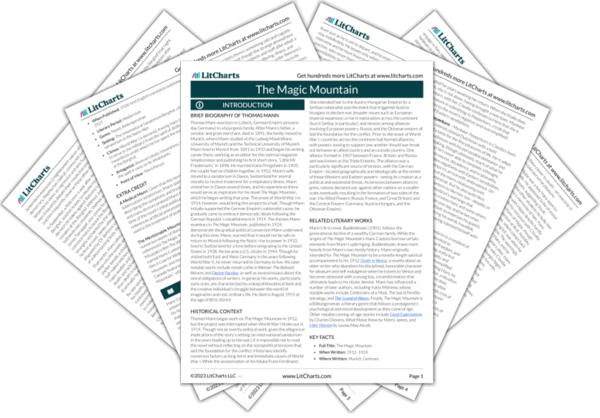Settembrini’s view, like the older religious ones he just criticized, acknowledges the limits of the human body: it is a shame when an otherwise capable person becomes sick and therefore unable to use their “life-affirming mind” to its full potential. But that’s about as meaningful as sickness gets: it’s a shame that it happens, but it doesn’t imbue the sick person with a higher purpose or a special wisdom. It is also significant that Settembrini indirectly refers to himself as teacher and to Hans as mentor, introducing a relationship that will inform their interactions for the remainder of the novel.
